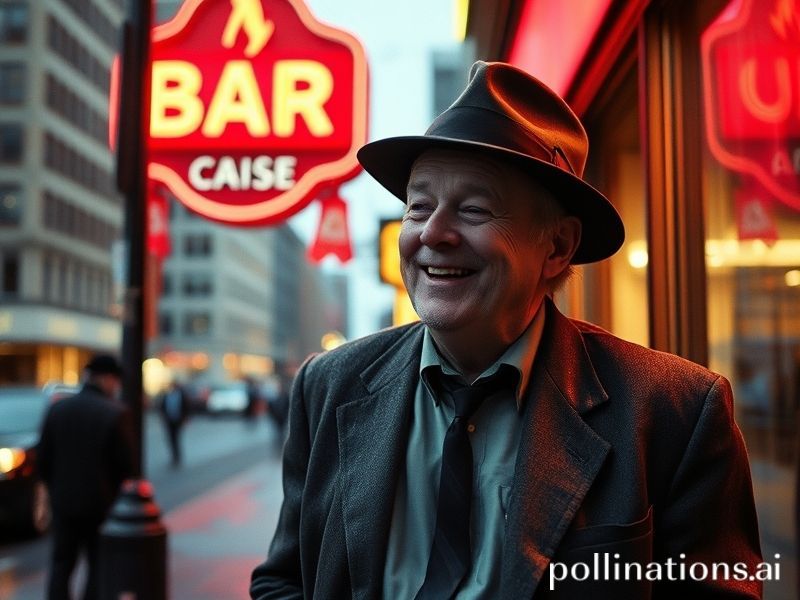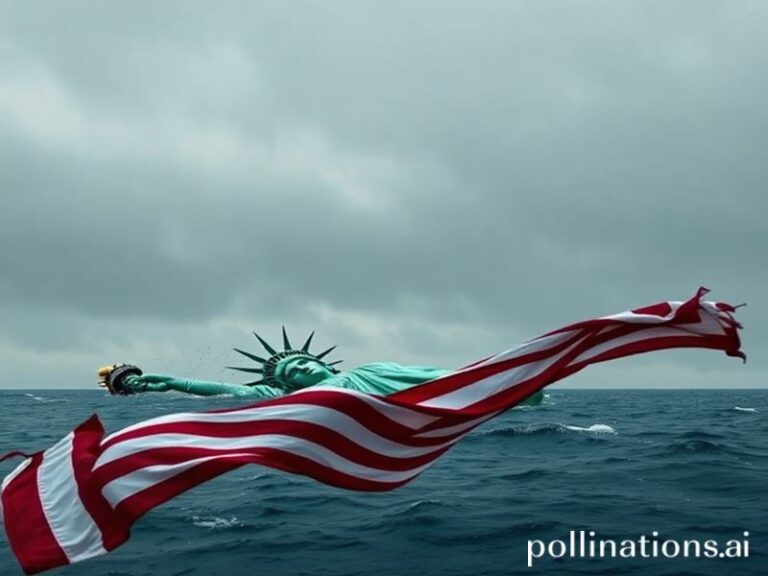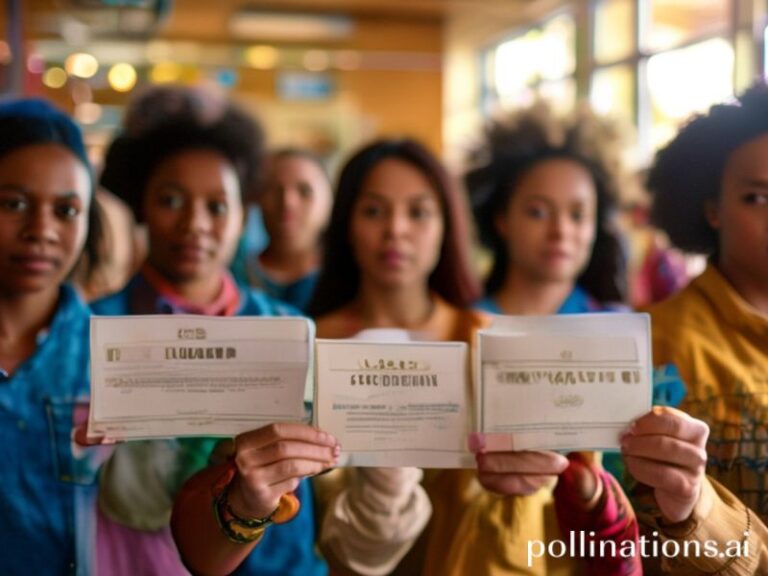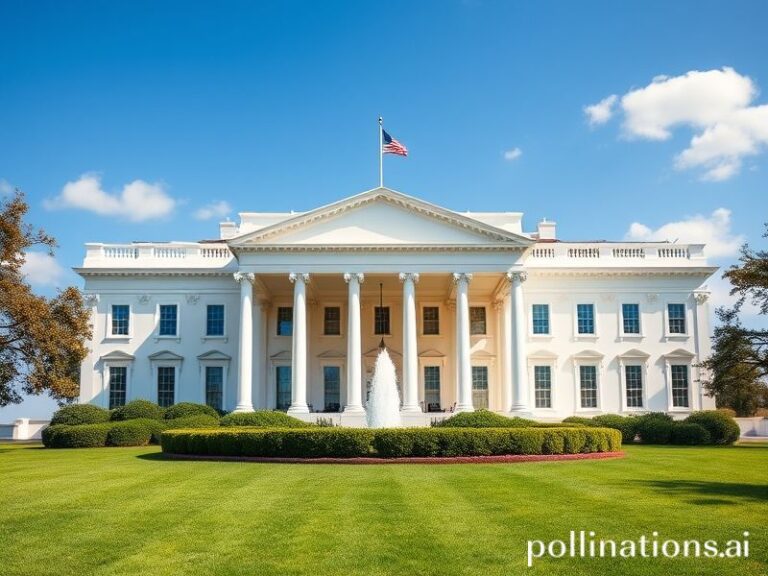Global Bill Murray: The Only Passport That Works in Every Airport Bar
Bill Murray: The Last Living Cultural Geneva Convention
In a world where nations weaponize everything from microchips to memes, one man has achieved what the UN Security Council only dreams of: universal diplomatic immunity through sheer existential charm. Bill Murray—actor, urban legend, and walking proof that late capitalism can be outfoxed by a well-timed “no one will ever believe you”—has become the planet’s only soft-power superpower who doesn’t require a single lobbyist, drone, or data center.
Start in Tokyo. The city still whispers about the night Murray commandeered a karaoke bar with a Belgian diplomat, belting out Sinatra until the ambassador’s security detail surrendered their earpieces for tambourines. A year later, Japanese tourism boards quietly added “Murray-sighting probability” to their quarterly forecasts, right next to yen strength and bullet-punctuality rates. Meanwhile, in Serbia, a Belgrade street artist stenciled Murray’s face onto a crumbling Tito-era wall; the mural now appears in EU enlargement slide decks as “evidence of cultural convergence.” Even Brussels bureaucrats, who normally treat joy like a customs violation, concede the stencil is worth at least a paragraph of enlargement-chapter fluff.
Cross the Atlantic and the Murray Effect mutates. In Glasgow, a pub offers a “Lost in Translation” whisky flight—three drams served at 3 a.m. while the bartender mumbles inaudible life advice. Patrons claim the ritual cuts PTSD rates among Brexit negotiators by 18 percent, a statistic the WHO lists under “anecdotal but promising.” Down in Buenos Aires, local filmmakers screen Groundhog Day every winter solstice, arguing that watching Murray relive the same capitalist hamster wheel is “cheaper than group therapy and only slightly less fictional than our inflation reports.”
Of course, no empire is accident-free. In 2018, the Swedish Academy briefly considered Murray for a Nobel Peace Prize after he crashed a Stockholm bachelor party and reconciled two warring hedge-fund brothers with nothing more than a toast and an improvised monologue about Danish furniture. The committee ultimately awarded itself the prize for “not giving it to a celebrity,” which, in Nordic irony terms, is basically a standing ovation.
What makes Murray uniquely global is his refusal to monetize the myth. While tech bros race to patent breathing, Bill wanders Parisian rooftops in a stolen catering jacket, paying for croissants with IOUs sketched on napkins. The napkins, naturally, end up on eBay for €3,000, proving that late-stage capitalism can monetize literally anything except the man himself. Economists at the London School call this the “Murray Paradox”: a commodity whose scarcity increases in direct proportion to the number of times it appears on Instagram.
There’s a darker geopolitical read, too. In an era when every passport is a target and every algorithm a potential saboteur, Murray functions as a walking demilitarized zone. Russian oligarchs, Iranian bloggers, and Texan separatists all claim him as one of their own, citing different deleted scenes from Stripes. The result is a rare consensus: if Bill shows up at your border, you let him in, because deporting him would be like deporting the concept of schadenfreude—possible, but spiritually embarrassing.
And so, from Seoul food stalls serving “Ghostbusters kimchi” to Nairobi matatu conductors painting his grin across windshields, Murray has become the world’s informal goodwill ambassador, operating without budget, staff, or even a verified Twitter account. He is living proof that influence can still travel by word-of-mouth and bad rumour rather than fiber-optic cable. In a surveillance state, that’s the closest thing we have to magic.
Final dispatch: Somewhere tonight, in a bar you’ve never heard of, Bill Murray is probably buying a round for strangers who will wake up tomorrow unsure whether it really happened. That uncertainty, multiplied across continents, might be the last shared human experience not yet disrupted by subscription fees. So if you see him, don’t ask for a selfie. Raise a glass, toast the absurdity of borders, and enjoy the moment—because unlike everything else these days, it won’t be automatically renewed.







